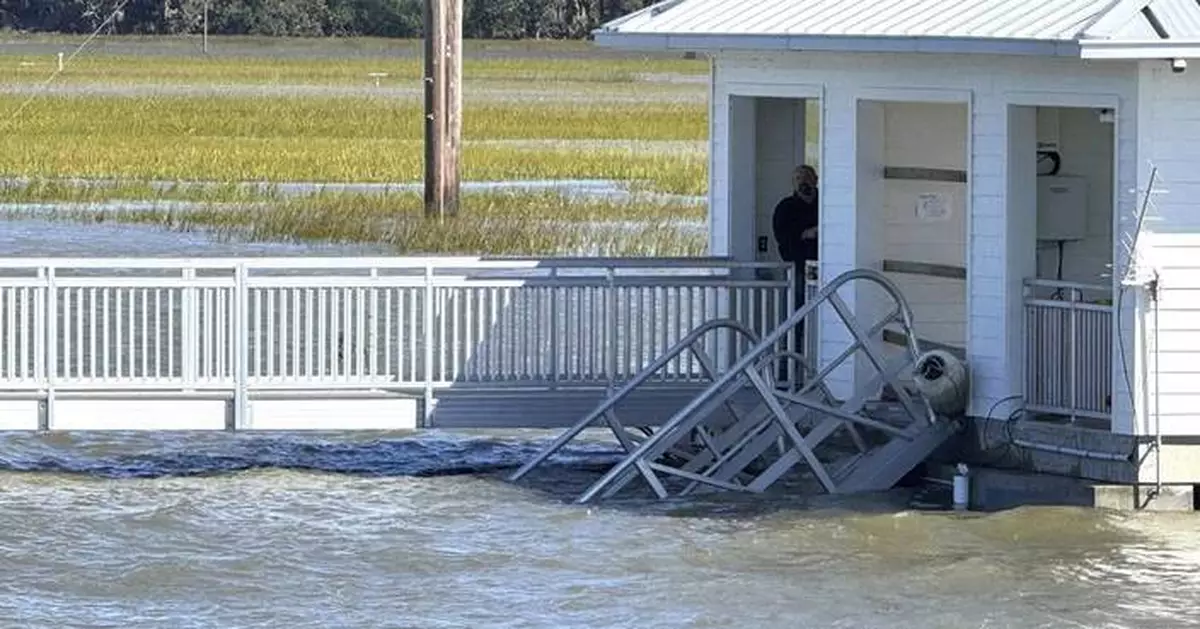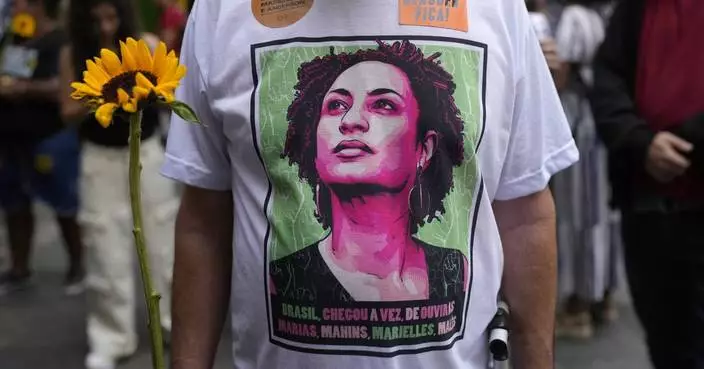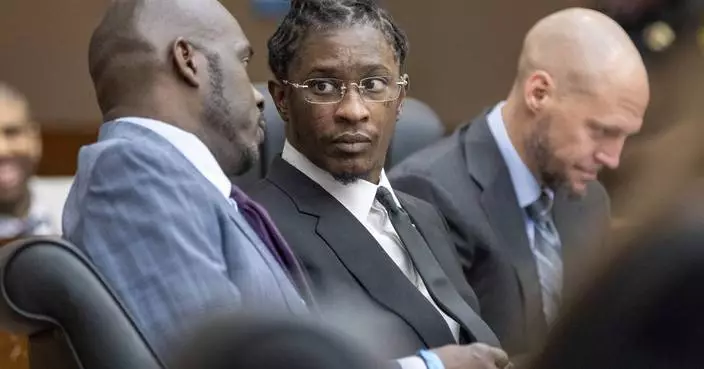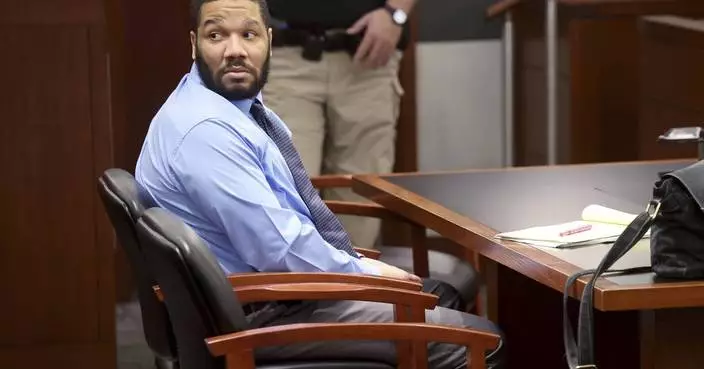SAVANNAH, Ga. (AP) — Survivors of a deadly walkway collapse at a state-run ferry dock on a Georgia island said Thursday that the government should help them pay for funerals for the seven people who died as well as medical bills and mental health counseling for those who lived.
Lawmakers on the Georgia Senate's Urban Affairs Committee heard from four people who were at the dock on Sapelo Island on Oct. 19 when a metal gangway snapped in the middle, sending dozens of people plunging into the water.
Among them was Yvonne Brockington of Jacksonville, Florida, who had arranged for more than 50 members of her club for older adults to visit the island during an annual cultural festival organized by its tiny Gullah-Geechee community of Black slave descendants.
Brockington said she was waiting with others to board an afternoon ferry off the island when she suddenly felt as if she was in a falling elevator. When she stopped suddenly, she felt both of her legs break. While bystanders used a rope to pull Brockington to safety, four members of her club perished.
“The psychological effect, I don't know if it will ever go away, but we definitely need help,” Brockington told lawmakers via video conference from her hospital bed. “It should not have happened. The state of Georgia owes us more than resources. They owe us an apology, and they need to make sure it never happens again.”
Other survivors told the meeting in Atlanta that the traumatic day still haunts them.
Darrel Jenkins, who pulled two people from the water but never learned whether they lived or died, said he continues to have nightmares and asks himself: “What about the people that might not have lived? Could I have done more?”
Regina Brinson said her 79-year-old uncle, Isaiah Thomas, drowned after she had to pry his clutching fingers from her shirt to avoid being dragged underwater herself.
“We need mental health support, financial support, resources to ensure that the survivors and their families have what they need to start recovery,” Brinson said.
The dock on Sapelo Island is operated by the state Department of Natural Resources, which manages the daily ferry service to and from the mainland.
The agency says about 700 people visited Oct. 19 for Cultural Day, a celebration of the tiny Hogg Hummock community founded by emancipated slaves after the Civil War. Hogg Hummock is one of the few Gullah-Geechee communities remaining in the South, where slaves who worked isolated island plantations retained much of their African heritage.
Mawuli Davis, an attorney for some of the people injured in the collapse, told lawmakers his clients have been contacted by state investigators for interviews but not by anyone offering assistance.
Lawmakers said they agree that the state should do more to assist the victims. But how much influence they will have isn't clear: The Senate Urban Affairs Committee is made up of six Democrats, while Republicans control the legislature and the governor's office.
“The state has responsibility,” said Sen. Donzella James, an Atlanta Democrat and the committee's chairperson. “We’re having this hearing to find out what it is exactly they're responsible for.”
The Department of Natural Resources, with assistance from the Georgia Bureau of Investigation, is investigating what caused the collapse. But victims' lawyers have said they don't trust the state agency to investigate itself, and last week Attorney General Chris Carr said he had called in an engineering firm to conduct an independent, parallel investigation.
No one from the Department of Natural Resources spoke before the committee Thursday.
Last weekend the department offered free counseling services to residents of Sapelo Island as well as on the mainland in McIntosh County. It said in a news release that “ongoing mental health resources will be provided to those in need” and that Natural Resources Commissioner Walter Rabon contacted families of those killed and “shared a phone number with them should they need anything.”
The news release also included a hyperlink to an online form that injured people can fill out to file a liability claim with the state.
A Department of Natural Resources spokesperson did not immediately respond to an email message seeking more information on how it is assisting victims.
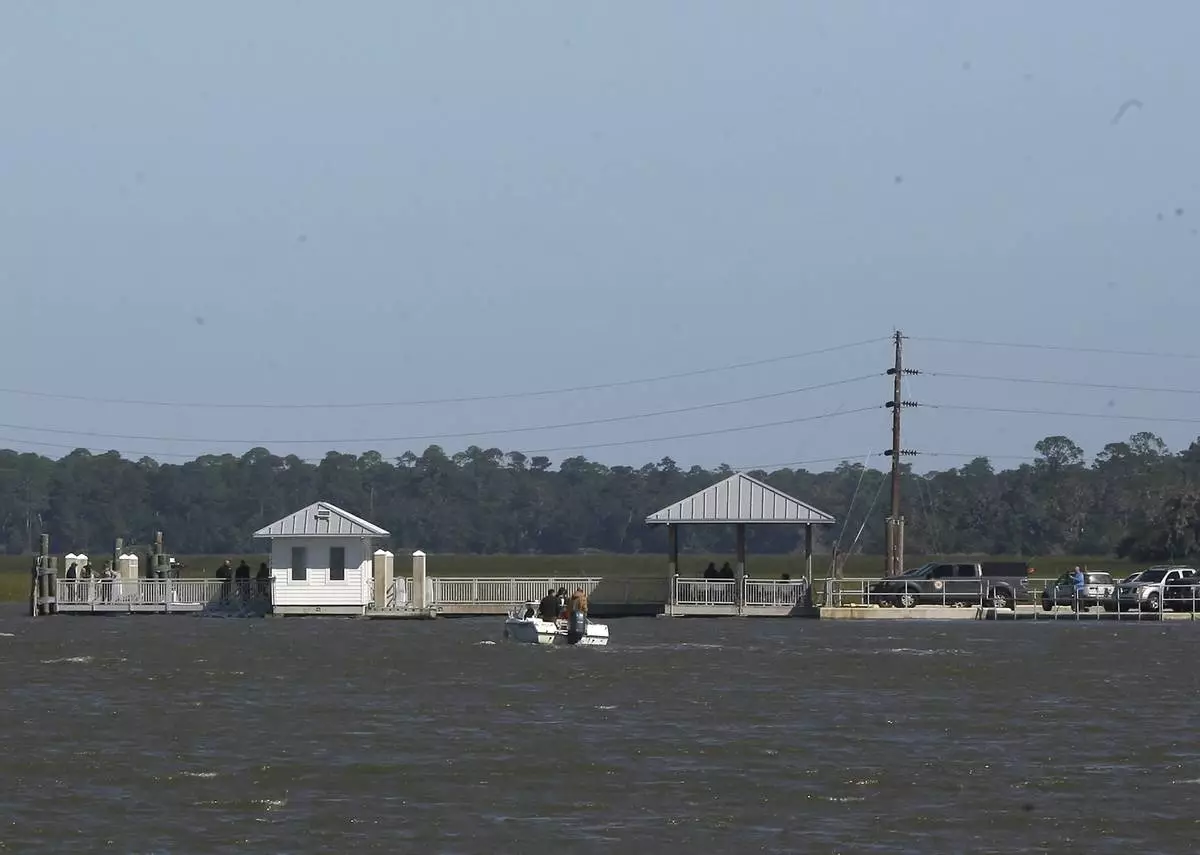
A portion of the gangway which collapsed Saturday afternoon remains visible on Sapelo Island in McIntosh county, Ga., Sunday, Oct. 20, 2024. (AP Photo/Lewis Levine)
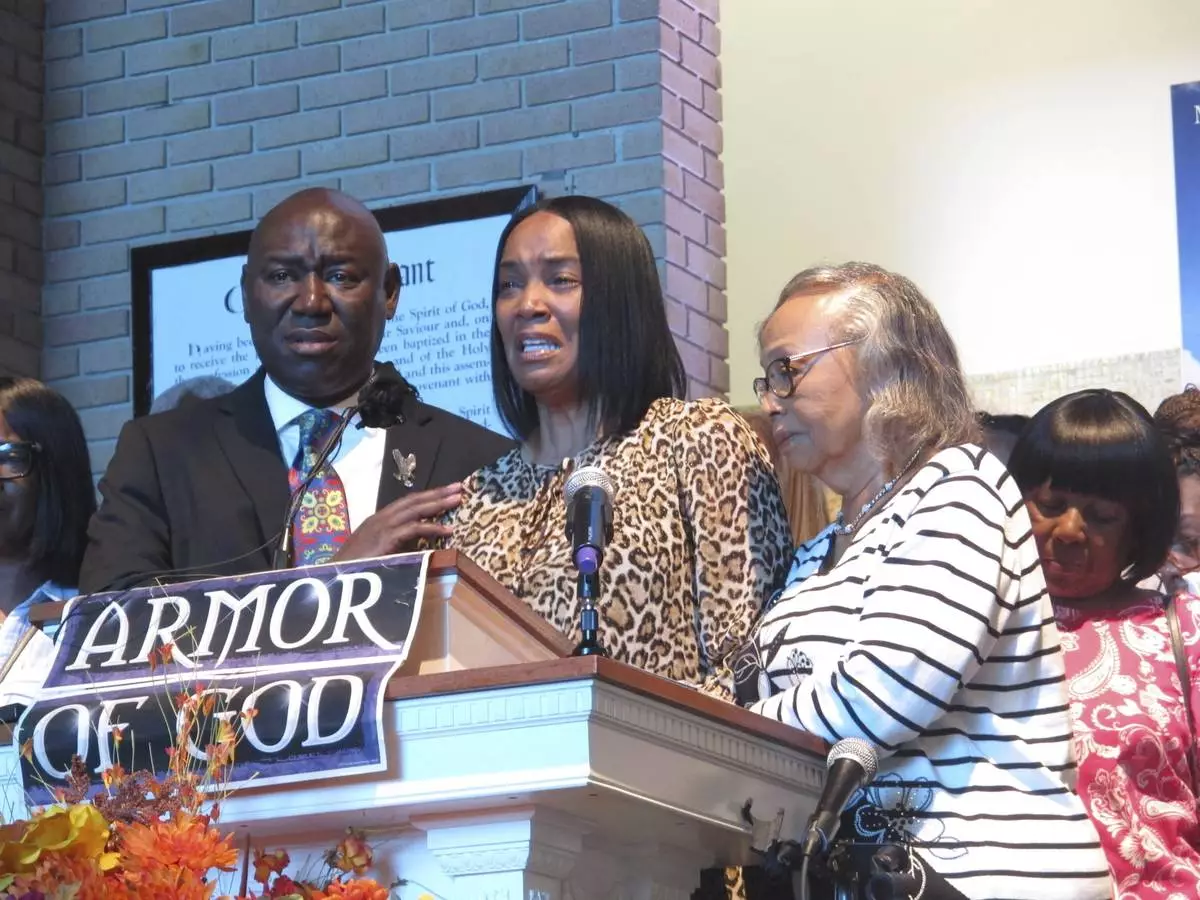
Regina Brinson, center, weeps at a news conference Tuesday, Oct. 22, 2024, while speaking alongside her mother, Katrena Alexander and attorney Ben Crump during a news conference in Jacksonville, Fla. Crump represents families of three of the seven people killed when a ferry dock walkway collapsed on Sapelo Island, Ga., on Saturday, Oct. 19. (AP Photo/Russ Bynum)
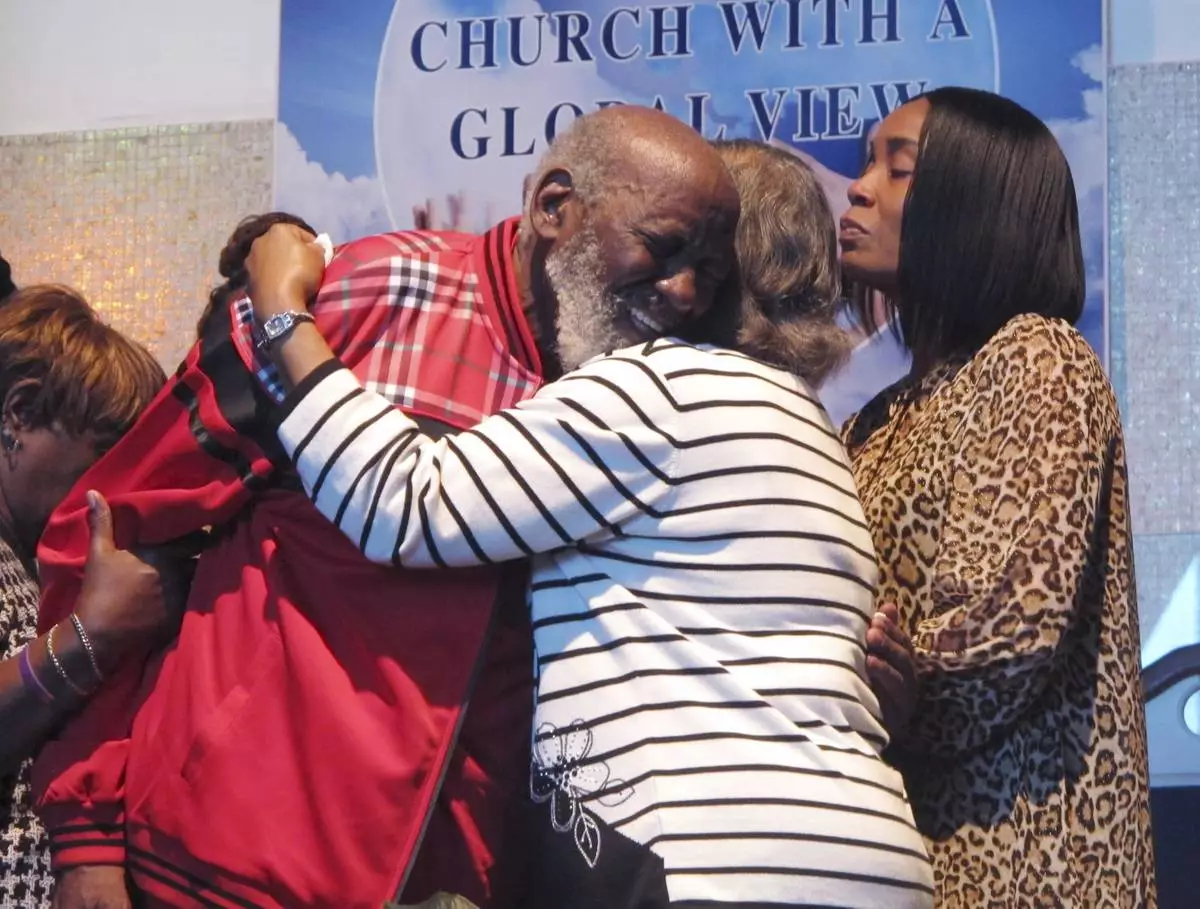
Wilbert Gardner, left, hugs Katrena Alexander while Alexander's daughter, Regina Brinson, right, looks on during a news conference Tuesday, Oct. 22, 2024, in Jacksonville, Fla, A dock gangway collapse happened as people were leaving a cultural festival on Sapelo Island, Georgia, on Saturday, Oct. 19, 2024. Alexander's brother, Isaiah Thomas, was among the dead. Gardner had a friend who was hospitalized with injuries. (AP Photo/Russ Bynum)
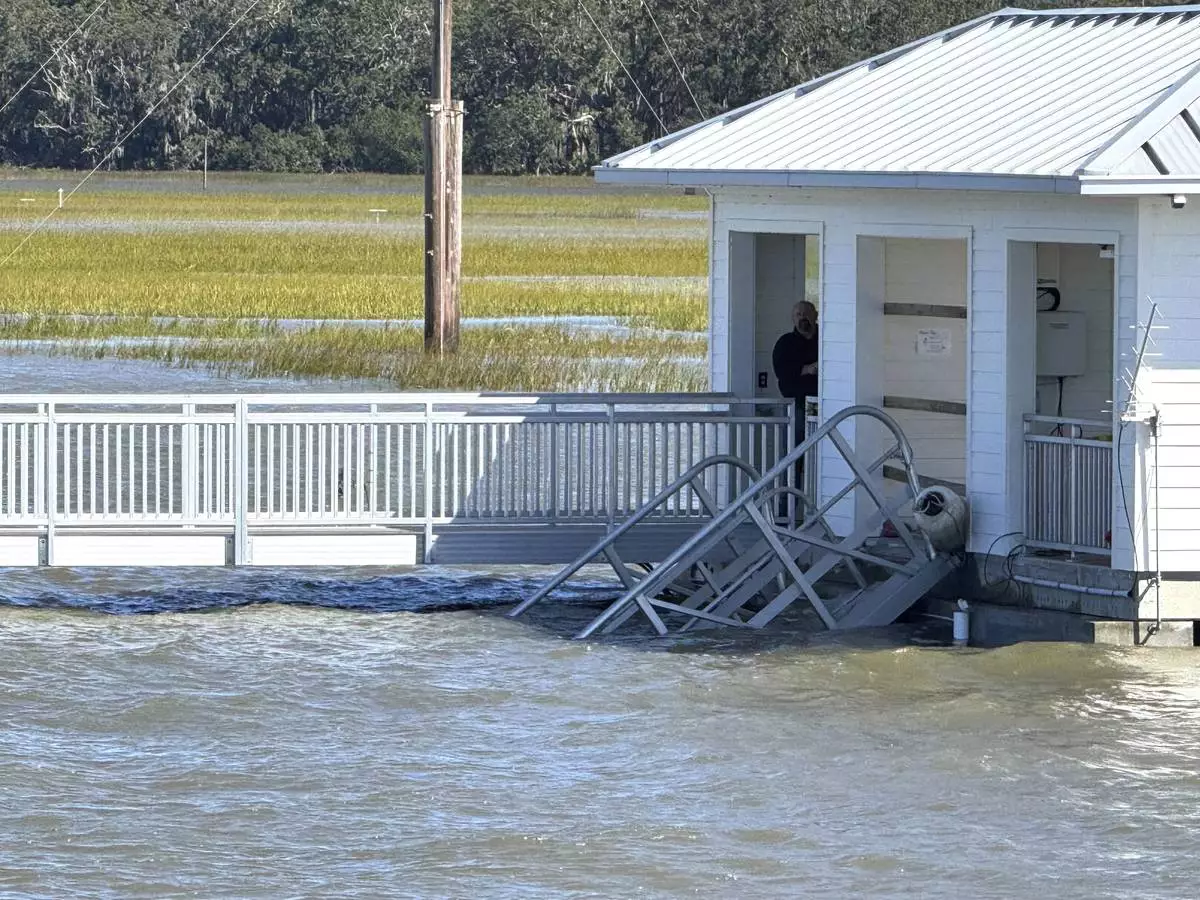
FILE - A portion of the collapsed gangway remains visible on Sapelo Island in McIntosh County, Ga., on Sunday, Oct. 20, 2024. (AP Photo/Lewis Levine, File)
BILLINGS, Mont. (AP) — A Washington state man who authorities said led a wildlife trafficking ring on a Native American reservation in Montana that killed thousands of eagles and hawks was sentenced Thursday to three years and 10 months in prison, and must pay more than $777,000 in restitution.
The trafficking ring over more than a decade sold eagle feathers and parts on a black market that exploits high demand among tribal members who use them in powwows and sacred ceremonies. The defendant and others killed at least 118 eagles, 107 hawks and as many as 3,600 birds overall, prosecutors said.
Juvenile golden eagles in particular were targeted because their black and white feathers are highly desired among Native Americans, officials said.
The poaching operation centered on the Flathead Indian Reservation in northwestern Montana, which researchers say has some of the highest concentrations of eagles and other birds of prey in the U.S. Members of the trafficking ring would set out carcasses of elk, calves and deer, and then shoot eagles that came to feed on them, authorities said.
They would also shoot hawks opportunistically from power poles and other perches.
Travis John Branson, 49, of Cusick, Washington, pleaded guilty in March to charges of conspiracy and wildlife trafficking.
U.S. District Judge Dana Christensen in Missoula said during his sentencing hearing that the killing of birds by Branson was calculated, extensive and carried out with full knowledge that he was breaking the law.
“If you had not been caught you’d still be doing it today,” the judge said.
The sentence was at the upper end of federal sentencing guidelines.
Prior to being sentenced, Branson apologized to the court and his family.
“It’s my own fault,” he said. “I know what I did was wrong.”
In text messages obtained by investigators and presented at the sentencing hearing, Branson wrote of killing birds since the 1980s.
“So many I can’t remember anymore LOL,” Branson said in one text.
Other texts described eagles being shot in Nevada and Idaho and instances of dozens of birds being shot on a single weekend.
“This is just a small glimpse of the killing that was happening,” U.S Fish and Wildlife Service Special Agent Mona Iannelli said during the hearing.
A second defendant in the case told authorities that the trafficking ring had been operating since 2009, killing 300 to 400 birds annually.
Prosecutors from the U.S. Attorney’s Office have said others were also involved.
But Branson was described during Thursday’s hearing as the organizer of the trafficking ring — instructing others on where and when to shoot birds, and then arranging for the sale of their feathers and parts.
“His lack of respect for the sanctity of these protected birds was driven by only one thing: greed,” U.S. Attorney Jesse Laslovich said following the hearing.
Laslovich added that those who purchased the feathers shared responsibility for the killings. The prosecutor said he wanted to put buyers “on notice that such conduct is a federal crime and that it must stop.”
Prosecutors had asked the judge to impose a “significant” prison sentence and order Branson to pay restitution of $5,000 for each eagle killed and $1,750 for each hawk.
He faced up to five years in prison on the conspiracy charge. His public defender asked for a sentence of probation and claimed that prosecutors overstated the number of birds killed.
Federal Defender Andrew Nelson also disputed the restitution amount, saying it was too high for the eagles and the hawks should not be counted.
Christensen rejected the arguments.
Branson, who grew up on the Flathead reservation, had no prior criminal history, according to Nelson. Because of the criminal charges, he lost his job as a maintenance supervisor for the Kalispel Tribe in Washington, Nelson said, and the defendant suffered a stroke in April.
The criminal case underscores the persistence of a thriving illegal trade in eagle feathers despite law enforcement efforts over the past decade that netted dozens of criminal indictments across the U.S. West and Midwest.
Bald eagles, once highly imperiled by the pesticide DDT, have bounced back in recent decades and are now abundant. The recovery of golden eagles has been more tenuous and researchers have warned that the population is on the brink of decline due to shootings, poisonings, electrocutions on power lines, collisions with wind turbines and other threats.
It’s illegal to buy or sell eagle feathers or other parts. The government has sought to offset strong demand for feathers among Native Americans by providing them for free from a government repository. But they’re unable to keep up with demand and the repository has a yearslong backlog.
Branson made between $180,000 and $360,000 from 2009 to 2021 selling bald and golden eagle parts illegally, court records said.
Christensen allowed Branson to remain out of custody until he reports for prison. The defendant made an obscene gesture to reporters as he left the courthouse without commenting further.
He waived his right to appeal under the terms of a plea deal that included the dismissal of additional charges.
The second defendant, Simon Paul, of St. Ignatius, Montana, remains at large. A federal judge issued an arrest warrant for Paul in December after he failed to show up for an initial court hearing. Court documents have suggested he fled to Canada.
Federally recognized tribes can apply for permits with the U.S. Fish and Wildlife Service to take a bald or golden eagle for religious purposes. Enrolled tribal members can apply for feathers and other bird parts from the National Eagle Repository in Colorado and non-government repositories in Oklahoma and Arizona.
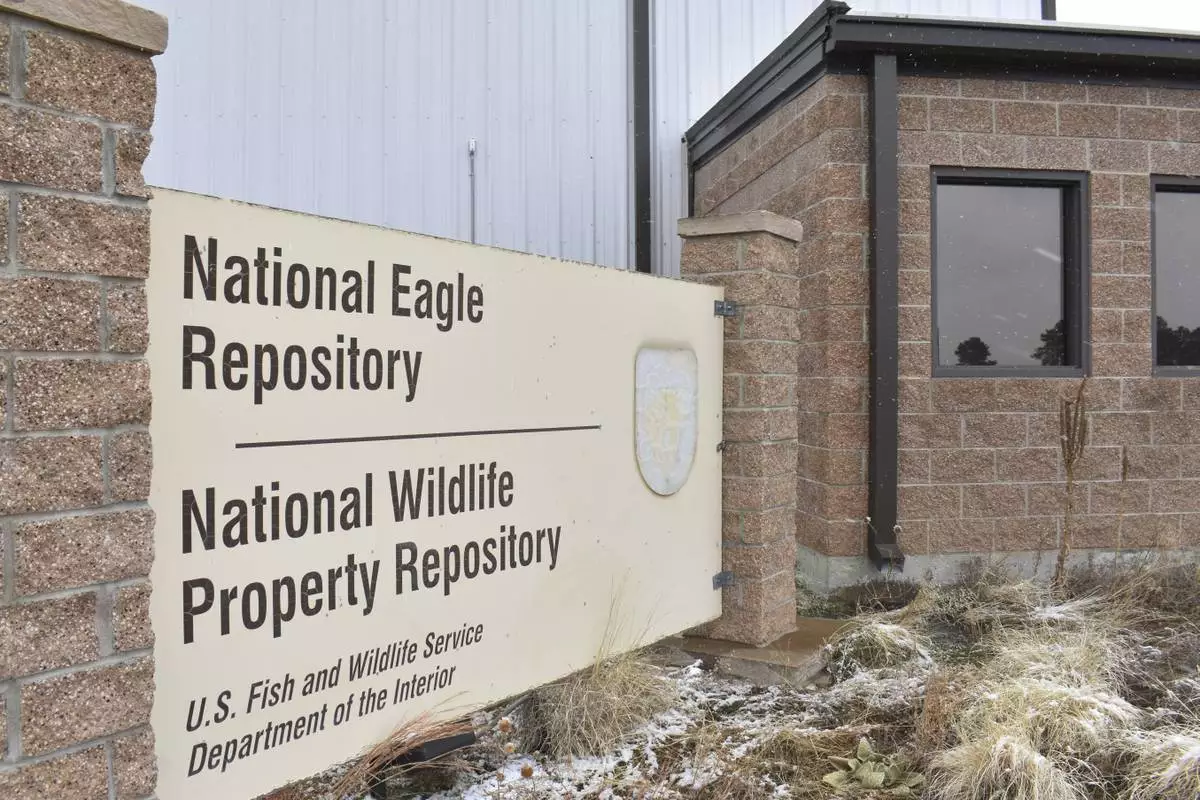
The exterior of the U.S. Fish & Wildlife Service's National Eagle Repository is seen in Commerce City, Colo., on March 8, 2024. (AP Photo/Matthew Brown)
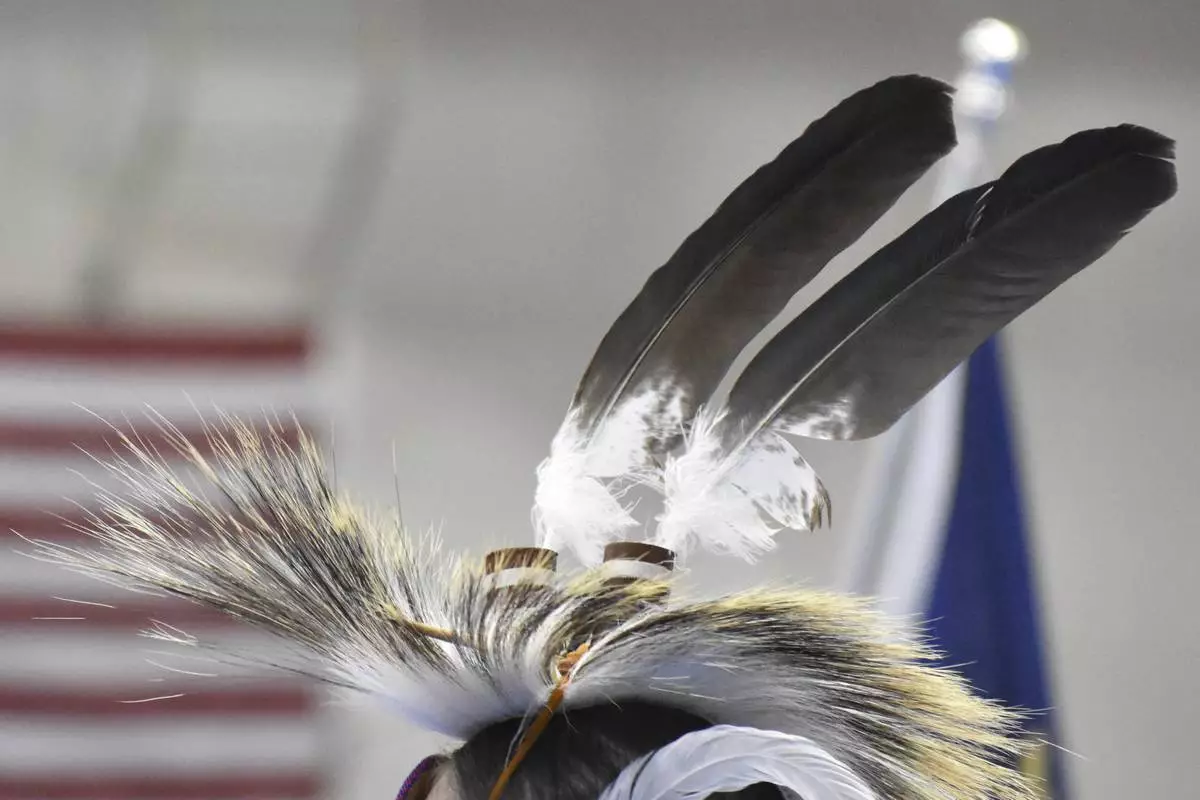
Eagle feathers adorn a headdress during a powwow in Montana, on April 6, 2024. (AP Photo/Matthew Brown)

FILE - An adult golden eagle circles overhead in a remote area of Box Elder County, Utah, May 20, 2021. (Spenser Heaps/The Deseret News via AP, File)
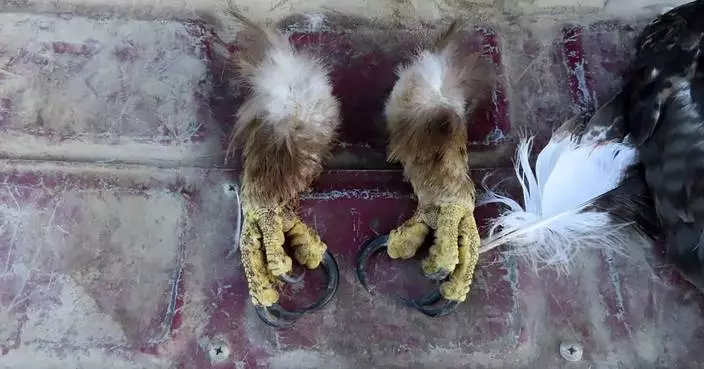
Man who killed eagles and trafficked their parts faces sentencing Thursday
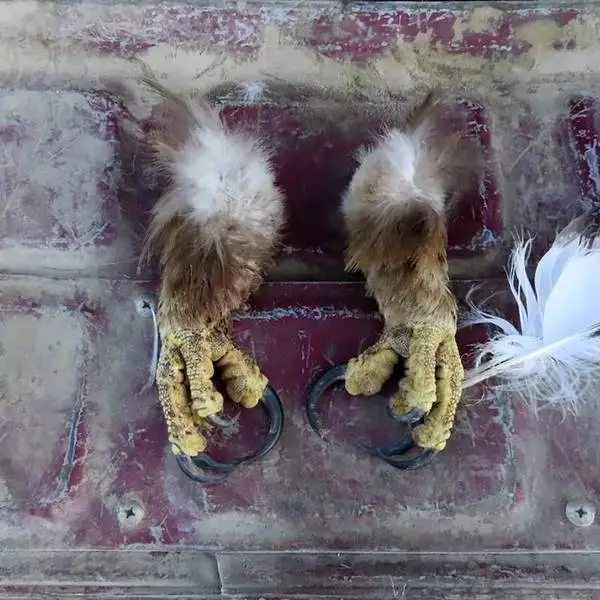
Man who killed eagles and trafficked their parts faces sentencing Thursday
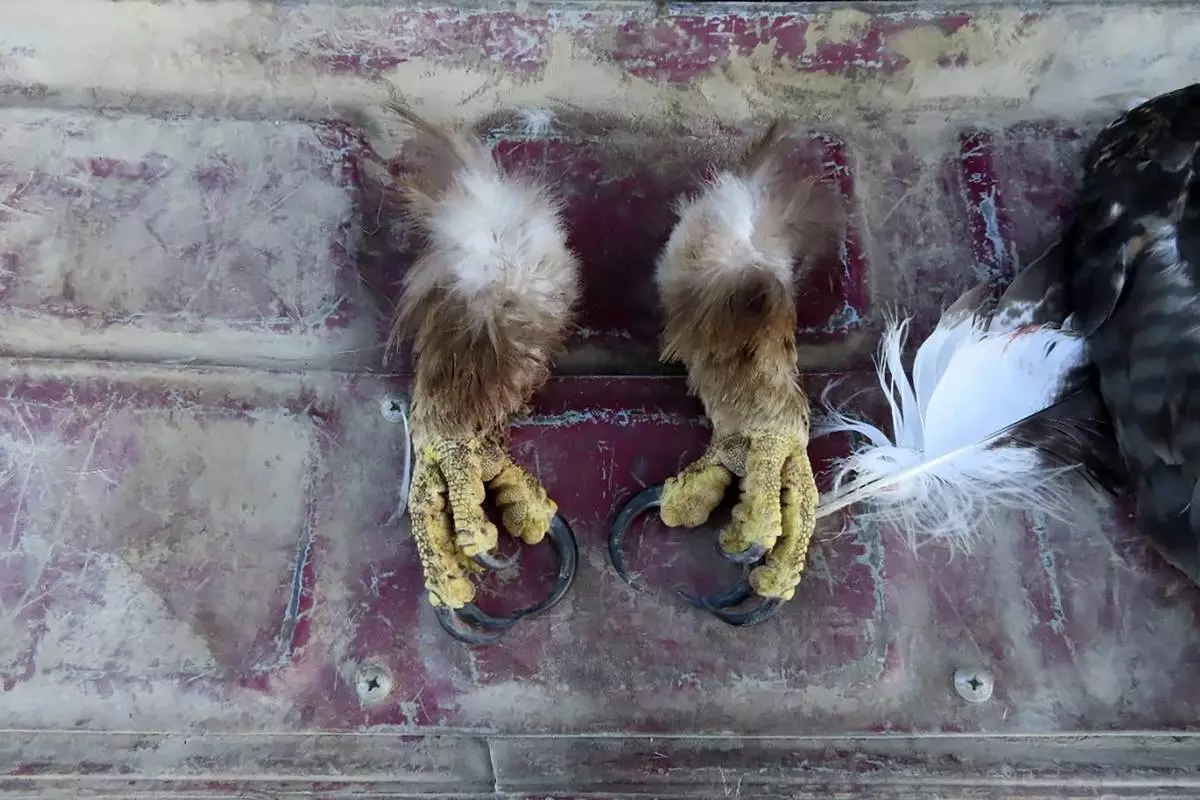
FILE - This undated photo from a court document provided by the U.S. Attorney for the District of Montana shows golden eagle feet recovered by law enforcement officers from a Washington state man's vehicle. (Courtesy of the U.S. Attorney for the District of Montana via AP, File)






